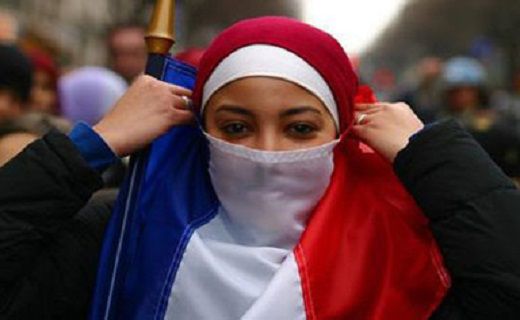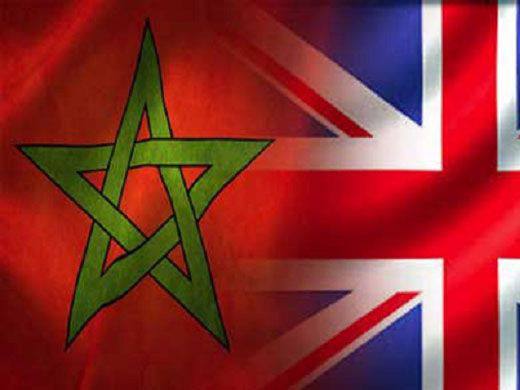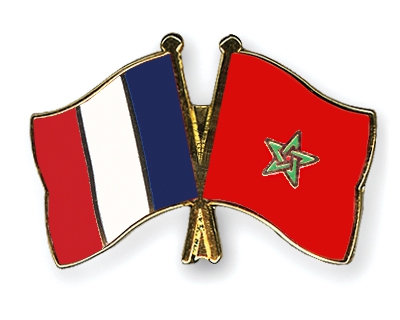
Unlike few countries in the world, for instance, Iceland, Portugal, and South and North Korea, France is considered a multicultural nation by nature; being composed of les Basques and les Bretons, notwithstanding a history that did not commence through colonization, as in countries like Brazil, Colombia, or the U.S.A, but, pursuant to Edgar Morin in his dialogue with Tarik Ramadan, has “migrants coming from all over the world, but its history remains specific.”[1] After a series of dolorous incidents, amongst which the ‘Burkini’ ban is regarded as the utmost controversial one, causing the nation to stand on the brink of a cultural crisis, splitting the country in two; those in favor of people of colour, people wearing a veil, a turban, and a Burqa, or people growing a beard, and those calling for “le nationalisme clos” and a homogeneous identity, France, in this regard, is more of an assimilationist nation than a multicultural one.
British Prime Minister David Cameron declared: “Europe needs to wake up to what is happening in our own countries… We’ve even tolerated these segregated communities behaving in ways that run completely counter to our values.” Notwithstanding Europe’s attempts to assimilate or tame immigrants, it has severely failed to anglicize or frenchify them, thought it claims otherwise; for “Assimilationist policies, French politicians insisted, avoided the divisive consequences of multiculturalism and allowed every individual to be treated as a citizen, not as a member of a particular racial or cultural group.”[2]
France is, nowadays, torn between two counter discourses; a discourse that adopts an anti-assimilation ideology-considered American par-excellence- and to repudiate the idea of assimilating immigrants, and by doing so, denying the very existence of a national culture or a homogeneous society and another xenophobic discourse, I prefer to call it, that reinforces the concept of “l’état-nation,” by imposing on immigrants “a common identity” and “common values” that are nothing but France’s “incommensurate” liberal ones.
Edgar Morin discusses “the weight of colonization, particularly in Algeria that was emancipated through war”[3] and this, a priori, explicates France coming in poignant terms with immigrants of Maghrebi origins. By dint of immensurable regret? Absolutely not! But due to a yearning to efface its very association with a bloody past. It also justifies the absence of a Maghrebi history from its curriculum and teaching Maghrebi youth a literature and a history that is neither theirs, nor about them; a narrative of “the I that is not me”. One can deduce that there is something terribly amiss with the French educational system that avoids at all costs teaching “the history of humanity”. On this point, I believe France to promulgate a veneer multiculturalism- a project already declared an utter failure by the former Prime Minister Nicholas Sarkozy- a multiculturalism keeping the French awake at night for fear of being replaced by a certain “Mo” and “Fatima”, or, worse, expulsed from their own country.
According to Michel Foucault[4] “Prison does not transform the “malfaiteurs” that it collects into a solidary and homogeneous population”, similarly, the objective of France is not orthopedic and does not aim to integrate or reconstitute French “citoyens models” out of previously colonized Africans or Orientals. Its exhaustive disciplinary apparatus aims to ooze “les méchants” and not reintegrate them in society, through isolation from the outside world. They inhabit the worst banlieues in France and “Comprise a substantial fraction of the manual working class and are overrepresented in dirty, dangerous, ill-paid, and menial occupations.”[5] On a related note, Edgar Morin talks about “a ‘quasi-ghettoization of French youth of migrant origins”[6], that I personally see as nothing but French atavism of colonial times; a statement with which Edgar Morin concurs; as he talks about “le complexe de supériorité du Français blanc.”
In a Kafkaesque rewriting of George Orwell, one can definitely create an analogy between this French society of control and Michel Foucault’s “carceral machinery” or “apparatus” that utilizes numerous methods to repartition individuals within its “walls”- physical walls or symbolic boundaries; that is “the lines that define some people, groups, and things while excluding others (Epstein, 1992, p. 232). These distinctions can be expressed through normative interdictions (taboos), cultural identities, attitudes and practices, and more generally through patterns of likes and dislikes.”[7] It classifies individuals and groups alike, codifies their everyday behaviour and maintains their visibility in a sort of clinical observation.
Foucault talks about “la privation de la liberté”, in this case, it is the liberty to think, to believe, and the liberty to be different. France, albeit its “liberté, égalité, fraternité,” has enormously failed to fully put those words in action and succumbed to the “brocken spectre”[8] of Islam and Arabs, putting aside a failed project of diversity. It is unable to turn a blind eye to immigrant’s religious and ethnic history and will continue to view Franco-Moroccans, Franco-Algerians, and Franco-Portuguese not as culture-bearers; as in people with a different cultural background, but as having to bear a culture- this, I believe to be a way of pathologizing “the other” and astringently attaching them to an ossified homogeneous monolithic identity. This might lead to a postmodernist route that ends in a radical avant-gardist separatism.
France praises its laicity, for it established an obdurate abrasive separation between the church and the state and, by doing so, announced laicity as one of its foundations as a modern western democracy and condemned religion to death; for anything religious is deemed arcane, retrograde, and exceedingly erroneous. The demise of religion in France and the combatting of the visibility of the religious in the public space does certainly clash with Muslim immigrant’s clinging to their conspicuous religious identity that is their metastable “collective treasure.” “In Weberian terms, religious reference is constituted of an “ideal-type” of which collective usage makes a cultural code”[9], though, according to Heinz Wismann, the forms of religiosity can be perceived as cultural codes, individuals of one pole can desire to be on the other and can even be more of the other than of oneself. The American conservative author and columnist Daniel Flynn avers that “Women wearing masks, arranged marriages, Sharia law separate from the law, and the de facto suppression of speech are a few of the ways in which European cities differ from themselves just a generation ago.”[10] Hence, it is axiomatic that this cultural code is extremely disquieting; for it reminds France of a religious past that is lorn, forever, it seems like.
Edgar Morin argues that “this emptied laicity clings to exterior forms; such as the veil”[11] the beard, mosques, “Oriental” “Muslim” names, and Arabic as the “undesirable language N°1” embodied in the notorious cries of “Allaho Akbar” as an omen of a looming catastrophe. He says that France is a place where coalesced a repulsion and an incomprehension exacerbating to a reduction of Islam to its most violent and fundamentalist minorities.[12] In Will Kymlicka’s[13] book on Multiculturalism, France is ubiquitously employing civic policies and grudging the recognition of immigrants as permanent residents and future citizens; of which the flagrant example, according to him, is prohibiting Muslim girls from wearing the hijab in schools; this is claimed to be for the fact that this contradicts with the country’s ethics of women rights.
In the subject of interethnic strife and the burgeoning of Islamic fundamentalism rising all across Europe, Daniel Flynn claims that “Only recently has expressing alarm at the Islamization of Europe even been considered within the bounds of legitimate political discourse”[14] and this is subsequent to the London subway attacks. But what is quite ironic about this is that the assailants are never foreigners but “homegrown jihadis,” for instance, Coulibaly who attacked a kosher supermarket in Paris, adding to the Kouashi brothers responsible for the Charlie Hebdo killings, and, quite recently, Omar Mateen, a 29-year-old American held responsible for the Orlando mass shooting at a gay nightclub. It seems like France’s divisive practices and its lack of a sense of nationhood has spawned different racial, ethnic, religious, and ideological discourses vying with one another over legitimacy and having Islamic fundamentalism as an unescapable corollary.
Tarik Ramadan, in his dialogue[15] with Edgar Morin, narrates Marine Le Pen’s advice for minorities, Muslims, in particular, as she told him that immigrants need to” render themselves invisible” by giving their children French names because, after all, adopting French values and beliefs is never enough. One can definitely say that the apple doesn’t fall far from the tree; as her father Jean-Marie le Pen’ once said that “être Français, cela se mérite.” A fiendish, though exceedingly lucrative, opposition strategy that uses immigration as a scarecrow to appeal to right wing votes. Apparently, François Mitterrand’s “droit à la différence” is no longer valid and “abandoned for a more hardline assimilationist approach, with the problems of North African communities presented in terms of their difference.”[16]
Tarik Ramadan claims that the individual’s legal status in a particular country does not confirm their sense of self-worth or of their contribution to the wellbeing of society, or even their feeling of belonging to that society. In a country like France that promises equal rights for all classes, ethnicities, genders, and religions and the government’s recognition of practitioners’ access to spaces of worship and their capability to practice religious rituals freely and without constraints, one still feels rebuffed and unwanted- one still feels not French albeit a state-sponsored nationalization. This leads us to the following questions that remain, until now, unanswered: What makes Frenchness? To what extent one can be French? Can French intersect with Black? Asian? Muslim? Arab? Veiled?
Cited Work:
[1] Tariq Ramadan et Edgar Morin. Au Péril des Idées: les Grandes Questions de Notre Temps. Presses du Chatelet. Québec. 2014.
[2] Kenan Malik. Terrorism has come about in assimilationist France and also in multicultural Britain. Why is that? https://www.theguardian.com/commentisfree/2015/nov/15/multiculturalism-assimilation-britain-franc
[3] Op.cit.
[4] Michel Foucault. Surveiller et Punir : Naissance de la Prison. Gallimard. 1975.
[5] Rogers Brubaker. Citizenship and Nationhood in France and Germany. Harvard University Press. London.UK. 1990.
[6] Tariq Ramadan et Edgar Morin. Au Péril des Idées: les Grandes Questions de Notre Temps. Presses du Chatelet. Québec. 2014.
[7] Michèle Lamont. Culture and Identity in Handbook of Sociological Theory. Springer. U.S.A. 2006.
[8] (German Brockengespenst), also called Brocken bow or mountain spectre, is the apparently enormous and magnified shadow of an observer, cast upon the upper surfaces of clouds opposite the sun. Wikipedia
[9] Heinz Wismann. Penser entre les Langues. Champs Essais. Spain. 2012
[10] Daniel Flynn. How Multiculturalism Killed Europe: An Identity Crisis that Led to Cultural Suicide. http://www.frontpagemag.com/fpm/85088/how-multiculturalism-killed-europe-daniel-flynn
[11] Tariq Ramadan et Edgar Morin. Au Péril des Idées: les Grandes Questions de Notre Temps. Presses du Chatelet. Québec. 2014.
[12] Ibid
[13] Will Kymlicka. Multicultural Odysseys: Navigating the New International Politics of Diversity. Oxford University Press. 2007.
[14] Daniel Flynn. How Multiculturalism Killed Europe: An Identity Crisis that Led to Cultural Suicide. http://www.frontpagemag.com/fpm/85088/how-multiculturalism-killed-europe-daniel-flynn
[15] Tariq Ramadan et Edgar Morin. Au Péril des Idées: les Grandes Questions de Notre Temps. Presses du Chatelet. Québec. 2014.
[16] Kenan Malik. Terrorism has come about in assimilationist France and also in multicultural Britain. Why is that?





